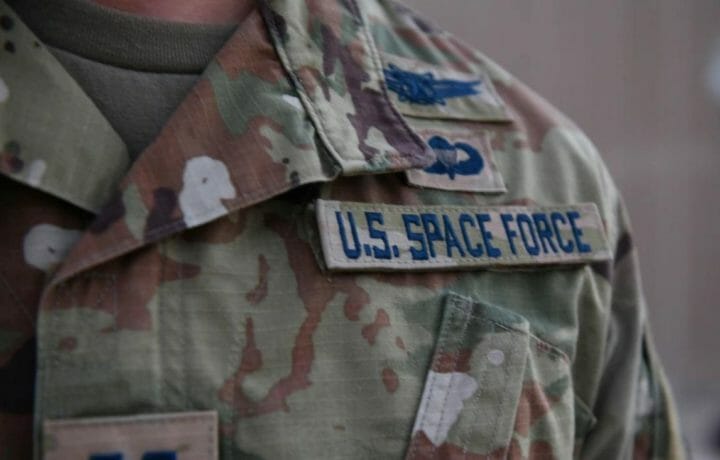A number of prominent universities have Air Force Reserve Officer Training Corps (ROTC) programs – and these include the Massachusetts Institute of Technology (MIT), Northwestern University, Vanderbilt University, and Notre Dame University. In total, the 145 Air Force ROTC detachments, more than 1,100 associated cross-town universities, four regional commands, and a higher headquarters staff located at Maxwell Air Force Base, Ala.
These programs allow students to become officers in the U.S. Air Force or U.S. Space Force.
In addition, there are also civilian opportunities in both services and this month, the U.S. Department of Defense (DoD) announced that it is exploring new ways to recruit civilian employees. That is important for the sixth and newest branch of the U.S. military, where civilians make up about 50% of the service.
DCTC Instead of ROTC
The Space Force is now part of a congressionally mandated pilot program, the Defense Civilian Training Corps (DCTC), which is similar to ROTC but with the aim to bring university graduates into the military as civilian employees rather than uniformed officers.
“Basically, if the college student is interested in the Space Force … they can volunteer to come and work with the Space Force on projects during their summer break,” Katharine Kelley, the U.S. Space Force’s deputy chief of space operations for human capital, said last week while speaking at the Mitchell Institute for Aerospace Studies.
“When they do that, they get an exposure to what is a civilian job in the Space Force, and what does it mean to be a civilian employee, or a federal employee in the Space Force,” added Kelley.
The Big Four
The DCTC was launched in May 2023, and the program is currently offered at four universities: North Carolina Agricultural and Technical State University, Purdue University, The University of Arizona, and Virginia Polytechnic Institute and State University.
The highly selective pilot program provides a multidisciplinary, active-learning curriculum with summer internship projects at DoD organizations, while it also offers a 100% tuition scholarship and a two-year curriculum with a project-based summer internship that prepares scholars for direct pathways into DoD acquisition-related careers.
“There’s a whole host of scientific and problem-solving related questions that our initial students, who are civilians in this program, have both participated in on a summer rotation, and we anticipate we’ll be able to bring students in on those types of work roles,” said Kelley.
Civilians in Service
Kelley also emphasized that many Americans remain unaware that it’s possible to work for one of the military services as a skilled civilian, and DCTC helps to make that fact clear.
“There’s still a lot of data out there that shows that a lot of the United States doesn’t understand that you can be in the military but be a civilian and be supported and be supporting,” she said. “This [program] exposes that talent population in some of these schools to those opportunities, and then they go back, they do their normal school year. When they graduate, we guarantee them a job. They join the Space Force, as a guardian, as a civilian, when they graduate college.”
As of 2024, the U.S. Space Force has more than 14,000 military and civilian Guardians.



